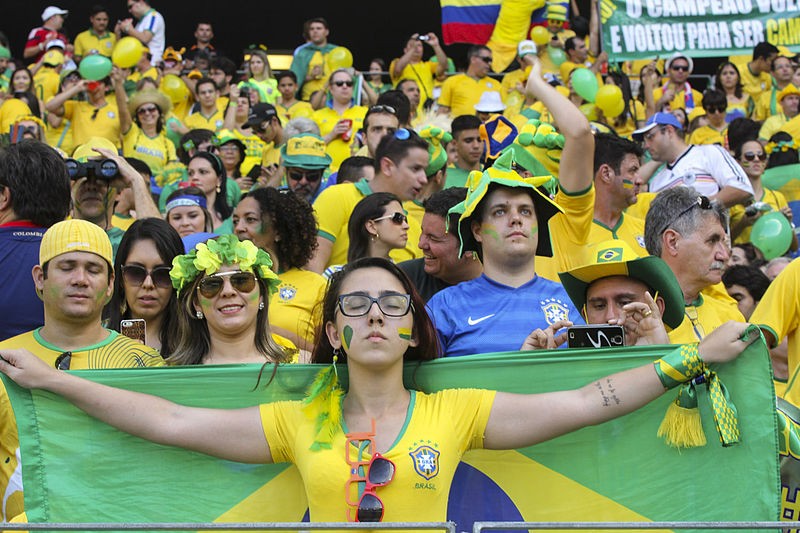France has never been Brazil’s favorite hunting ground. That shared disdain between team and venue goes back to the 1998 World Cup, when an all-conquering Brazil side were ruthlessly dismantled, in as one-sided a final as you will ever see, by a Marcel Desailly-led side. Two goals from Zidane, followed by Emmanuel Petit who put the finishing touches, led to nearly 15 years of dominance over the Selecaos.
That all changed in June 2013, when Brazil finally shook off France in a 3-0 win during a friendly international. It looked like Brazil’s ascendancy was well and truly on its way, when the unfortunate mauling they received at the hands of the meticulous Germans, in the 2014 FIFA World Cup semifinals. As Brazil carreened off the railroad, talking Scolari’s career with it, Didier Deschamps’ France side duly impressed with a strong showing.
It was no surprise that Deschamps’ men would start as favorites at their home ground, given Brazil was still seen as recovering from the nightmares of the past summer. With Zidane, Henry and Desailly in attendance and the game being played in memory of the Germanwings victims, France needed little prodding to start the brighter side. Brazil, on the other hand, seemed shaky and nervous facing the biggest thorn in their sides. And when Varane vaulted France into the lead around the 20′ minute mark, it looked all too painfully familiar for the Brazilians.
Instead, in a manner, in which even their most hardened fans will admit took them by surprise, Brazil refused to throw in the towel. Dunga has clearly imbued his men with a mental toughness not usually associated with South American flair teams. The former captain has rebuilt the fragile Brazilian side with the same kind of approach favored by the French in the late 90s.
While the Zidanes and Henrys dominated the headlines, it was Viera and Makelele who ran the show, content to stay in the background. Dunga has his own bunch of show runners to call upon, to bolster the Oscars and Neymars. In Firmino, Dunga has a player ready to shoulder the responsibilities of cranking up the pressure, when Oscar is unable to bring the goods. Playing Elias alongside Luis Gustavo, has proved to be a masterstroke.
Dunga’s preference for aggressive counter attacks, and uncomfortably close marking, has taken Brazil’s traditional strengths viz. their energy and fleet-footedness, and used them for purposes Scolari never would. In all fairness, Elias and Gustavo did find things easier without the talented Pogba to contend with.
If Deschamps was known for a refreshing sense of pragmatism, Dunga is a more ruthless proponent of that style. The latter’s appointment came in for much criticism from the Brazilian press, for his dour, allegedly boring approach to the game. But it will take a cynic to deny that Dunga’s footballing sense has lost none of its sharpness. Neymar was no longer Brazil’s only hope; he was now just the feather in Dunga’s cap.
In the end, Brazil beat France by playing a bit more like a European side than a Latin American one. Deschamps may not press the panic button yet, and Brazil may not have tided over the demons of its past, but one man walked away with more than he came in with. The wily Dunga had just achieved seven victories on the trot with a team that had lost its spirit.
